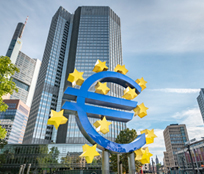In today’s meeting, the European Central Bank’s (ECB) Governing Council resolved to further expand its monetary accommodation by enlarging the Pandemic Emergency Purchase Programme (PEPP) by €600 billion, lengthening its duration by six months to at least the end of June 2021, and committing not to reverse the effect of those PEPP purchases until at least end-2022. In addition, ECB President Christine Lagarde presented new macro forecasts that take into account the economic performance to date and show a worryingly low inflation forecast of 1.3% for 2022.
With these decisions, the ECB clearly surprised the market on the dovish side, as reflected in significantly lower peripheral yield spreads over German bunds at the time when the statement was published. We think that the surprise was indeed holistic in the sense that the ECB delivered more than the market was expecting on all decisions it took. That said, combining the increase with the extension implies that the purchase rate of sovereign bonds under the PEPP will stay roughly unchanged into 2021. Based on today’s decisions, we expect the spread between yields on core and periphery bonds to compress further, but the ECB may have to do more to get medium-term inflation and inflation expectations back up.
On other important issues, Lagarde clarified that the ECB’s Governing Council has not discussed in detail the prospect of including sub-investment-grade-rated bonds in the purchase programs. Regarding the recent ruling by the German Constitutional Court, Lagarde had to repeat her view several times that the ruling was directed at German authorities and that she was confident that a good solution could be found. In this context, she underlined that a version of the “proportionality assessment” requested was inherent in the ECB deliberations and always found its way into the meeting accounts, hinting at a way that the Bundesbank and other institutions could defuse the issue.
We also note a pointed exchange toward the end of the press conference regarding Lagarde’s strong focus on her written brief. While this might seem a minor point, we actually think this is quite important: After a couple of wobbles in previous press conferences, Lagarde did not commit any delivery mistakes today while having to communicate inflation forecasts that arguably no longer converge to the target. This is no minor feat and consistency of message is obviously crucial in this context even though the market will still require time to digest the new forecasts.
We think that today’s decisions need to be viewed against the backdrop of the shockingly low inflation forecast, as argued by Lagarde in the press conference, but also against the fiscal developments in European economies and at the European level. While this year’s purchases of sovereign bonds is roughly enough to cover governments’ COVID-related stimulus outlays, the PEPP extension is arguably meant to further accommodate EU borrowing in the context of the Next Generation EU programme currently still under negotiation. Stepping back for a second, the ECB is clearly satisfied with the progress on the fiscal front, and will happily support those efforts even though it is hard to judge at this point whether a pandemic emergency will still exist in 2021, including in light of the growth rebound forecasted by the ECB. For that reason, Lagarde stressed the link between the PEPP as a monetary policy instrument and the need to deliver an appropriate monetary stance via the most effective tool in the shed, for now.



